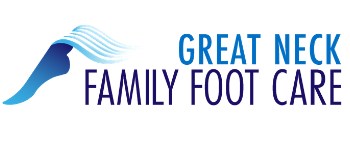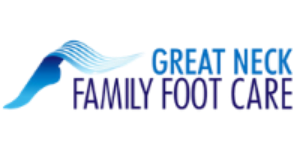15 Jun Great Neck Family Foot Care ‘s Summer Guide to Foot Health
Great Neck Family Foot Care’s Summer Guide to Long Island Children’s Foot Health
The school year is ending and that means your children’s days will be centered in soccer fields, back yards, swimming pools, beaches — wherever the latest summer adventures are happening. Those little feet will be splashing in and out of water, and pounding across many more environments than just sidewalks, carpets and classroom linoleum. The Podiatrists at Great Neck Family Foot Care know that physical activity and fresh air are necessary for healthy development, but it’s helpful for parents to keep an eye on the basic elements of foot safety. The team here at Great Neck Family Foot Care want to make sure your kids’ feet stay healthy throughout the summer season.
Foot Injury From Sports
Have you signed your child up for summer teams or sports camp? You can support your his or her new ventures into self-discipline by watching for signs of undue foot stress as your child meets the demands of a new coach. Pay attention to any reports of heel pain, and keep an eye on whether there are changes in your child’s gait. If he or she is starting a new sport that requires a lot of running and turning, you may want to talk with your family podiatrist. Ankle taping is sometimes a helpful measure to prevent strains, and your local Long Island foot doctor can easily teach you the technique.
Perils Of Bare feet
While going barefoot in clean environments is good for babies, our Great Neck Family Foot Care pediatric foot care specialists recommend that children and adults should avoid going outside with bare feet. Even if pavements or lawns look clean, tiny bits of glass and other sharp objects can cause days of discomfort as well as open a pathway to infection. Be sure your family is up to date on tetanus shots, and visit your podiatrist or physician if any puncture wounds or other injuries occur.
Insects
Wearing shoes while outdoors will protect the feet from almost all insect stings on the feet. If your children play in the woods or naturally grassy areas here on Long Island, it’s a good idea for them to wear long pants, socks and shoes. While deer ticks don’t usually bite people on the feet, they may climb the legs and settle in areas where they won’t be disturbed. Since it’s impossible to completely avoid areas where deer ticks live, you can keep your kids safe by making sure they bathe or shower thoroughly on the same day they were playing outside. Lyme disease is not transmitted until the tick has been attached to the body for more than 36 hours.
Fungus and athlete’s foot
Swimming pool locker rooms are notorious for transmitting foot fungus. These organisms, known as tinea, are not dangerous but they can cause discomfort and unsightly peeling. The most effective way to prevent foot fungus is to wear flip flops or shower shoes while in shared public locker rooms. Secondarily, it’s important to keep feet clean, and to wear fresh cotton socks each day. Shoes should fit well and not make the feet sweat, since warm moist environments foster the growth of fungus. Open-air sandals or well-fitting shoes with natural fiber socks will keep most fungus problems at bay.
These result from a virus that invades the skin through tiny nicks or cuts, and once that virus gets established, it’s not easy to dislodge. Plantar warts can seriously interfere with activity and they often require long-term treatment.They can be prevented by the same measures that prevent the spread of tinea fungus, with the additional advice that children should not touch warts on themselves or other people.
Hiking for healthy feet
Taking some walks or manageable hikes together as a family is a great way to spend time away from screens and to increase overall physical fitness. Walking is the best possible exercise for feet, increasing strength and resilience without putting any unusual stresses on the delicate architecture of the foot. Make sure your children have well-fitting tennis shoes or hiking boots with good arch support.
Is your child going away to camp?
If you plan to send your child to sleep-away camp, you may feel that all the good advice and cotton socks in the world won’t help if your child doesn’t use them. To some extent, that’s true; part of the discipline of being a good parent is recognizing that your child autonomy can only develop autonomy if he or she spends some time away from your control.
While the camp’s health policy may not specifically mention feet, you can certainly ask the sports and nursing staff to be aware of issues that may arise from over-stress or injury.
When it’s time to shop for shower shoes or flip-flops to pack up in the duffel bag, let your child choose any kind that he or she likes; this is not a major fashion decision. When you bring the shoes home, keep them wrapped up and don’t let the child wear them — explain that they’re being saved especially for camp. That way, at least you can be fairly sure they’ll be worn once! Advise your child that if they experience any sort of foot-related problems, they should ask permission to see the camp nurse.
Above all, Dr. Alec Hochstein and the whole team here at Great Neck Family Foot Care want you to enjoy your summer! The overwhelming majority of small feet run through these sunny months without a speck of difficulty, and when fall comes you’ll see a stronger, taller child with more energy and a whole pack of new skills.






Sorry, the comment form is closed at this time.